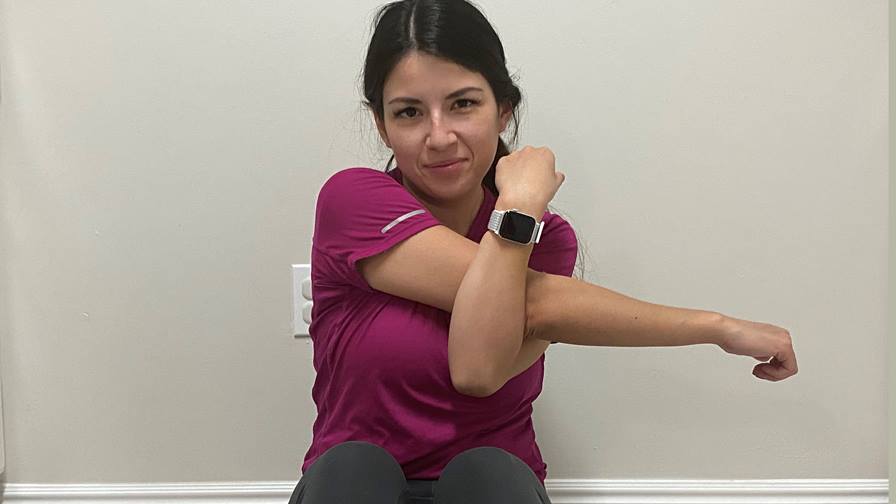
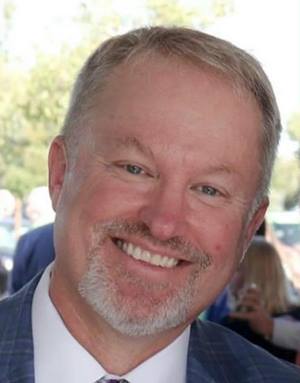
Chris Dallin is a communications director.
It’s just a few days into the new year and there’s a chance you’re already rethinking your goal-setting philosophy or wishing you could reset your New Year’s resolutions.
Several caregivers recently offered insights into their own goal-setting approaches. Their tips below may prove helpful to any looking to improve in 2021.
- Goals must be measurable. Chris Dallin is a communication director who leads a team that’s focused and achieves measurable goals. He believes a goal, by definition, has to be measurable. “How do you know if you’re winning or losing if you don’t have something that’s measurable?” Chris says. “How would you know if the changes you make have had an impact, if you’re not tracking that goal? I think the tracking is absolutely essential for goal setting. Is it really a goal if you can’t measure it?”
- Enjoy documenting and celebrating your progress. “It is fun to go back and see how I’ve improved, and it’s cause for celebration to look at that,” Chris says.

Natlie Welsh is a medical assistant.
- If your goals are deeply internalized, you may not need to write them down. Natalie Welsh is a medical assistant at the Utah Valley Pulmonary and Sleep Clinic. “If writing down a goal helps spark action then that could be a step in reaching the goal.” Natalie says. If a goal becomes a conviction, it’s deeply internalized and such goals might not need to be written down, she says. Claudia Chinn is a marketing and communications specialist who managed to get in better shape during 2020, despite the year’s limitations. She says she set and achieved fitness goals in 2020 without writing them down. “Some people subconsciously set goals without noting them down on physical paper,” she says. “I think we all set goals, even if it isn’t done the universal way we’re told to do them.”
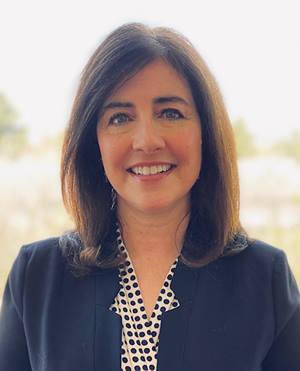
Kim Compagni is the Pain Management Services assistant vice president.
- Break big goals into more manageable, realistic goals. Kim Compagni, Pain Management Services assistant vice president, says she finds great value for her team when it sets specific goals that are measurable and broken down into quarterly goals. One advantage to such an approach is that it makes it easier for you to communicate about your progress with others. She says if your goals aren’t realistic you could be setting yourself up for failure. She advocates for doable short-term goals that feed into larger long-term goals.
- Don’t be afraid to adjust goals if they aren’t working for you. “Life’s always shifting; life’s always changing; life is fluid,” Natalie says. “So you need to be able to be fluid with life, while keeping in mind your end goal.”

Claudia Chinn is a marketing and communications specialist
- Develop good habits and processes to achieve goals. “I keep my goals in the front of my mind and work hard to develop the habits that will help me achieve my goals,” Claudia says. “I get into a routine and develop habits to achieve my goals before I do anything else. Staying committed and striving to stay in the habit of my routine has helped me keep on track.”'
- Forgive yourself if you get off track. “I do believe it’s perfectly fine to fall off the rails because life happens and our circumstances and goals won’t always align when we want them to. Luckily, we can always try again,” Claudia says.
- Don’t be afraid to adjust goals if they aren’t working for you. “Life’s always shifting; life’s always changing; life is fluid,” Natalie says. “So you need to be able to be fluid with life, while keeping in mind your end goal.”
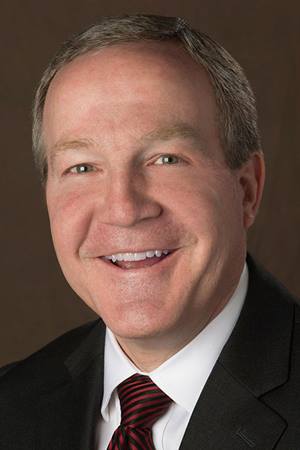
Mark Ott, MD, is Intermountain Medical Center's medical director.
- Enjoy the journey. “The quantifiable part of a goal sure does help, but I also think it’s important to reflect on the way you feel while in the process of reaching your goals and throughout your journey,” Claudia says. “I think the positive and uplifting feelings while on the journey are also legitimate.”
- Focus on next steps if big goals seem overwhelming. Kimmie Wagner is a phlebotomist who works at Orem Community Hospital. “Personally, it's emotionally healthier for me to ask myself to take steps than to ask myself to achieve a result,” Kimmie says. “Small everyday successes are more motivating to me than focusing on a distant result.”
- To document personal goals, try detailed journaling. Mark Ott, MD, Intermountain Medical Center’s medical director, says he sees great value in the kind of detailed goals that can be set in the workplace to unify a team and measure its progress. When it comes to his personal goals, such as his desire to be a kinder person and a better teacher, he documents his progress with daily journal entries and details out things he can do to improve. “I think when it comes to human interactions and those type of soft things — like how do you treat your spouse, how you treat your family, and how you treat the people around you — for those things we’re accountable to the people around us and we’re accountable to God. And so, for me, I think keeping a journal and writing about it every day makes me feel accountable to myself and God.”
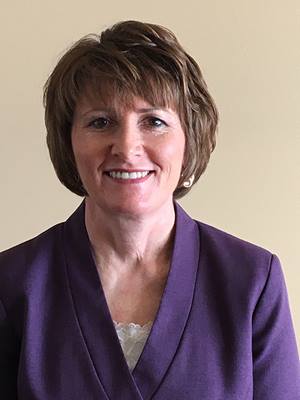
Shelley Egley, RN, MSN, is Intermountain's patient advocacy director.
- Keep trying even if progress doesn’t come easy. Shelley Egley, RN, MSN, is Intermountain’s patient advocacy director. “I think what’s most important is that we continuously work toward being and doing better,” Shelley says. “It might mean three steps forward and two steps back but it’s progress. My personal goals these days are around who I can become more than what I can accomplish. I try to cut myself a little slack and know as long as I keep trying, the cumulative result will hopefully be worth the effort.”
- Make your goals visual. Shannon Peterson, RN, ambulatory nurse director, says she’s very task oriented and puts things on a calendar. She says when she can cross things off a list and see visual evidence of the goals that have been achieved, that helps her. “I see it as chiseling away at a boulder. Progress drives motivation.”
- Make your goals visual. Shannon Peterson, RN, ambulatory nurse director, says she’s very task oriented and puts things on a calendar. She says when she can cross things off a list and see visual evidence of the goals that have been achieved, that helps her. “I see it as chiseling away at a boulder. Progress drives motivation.”
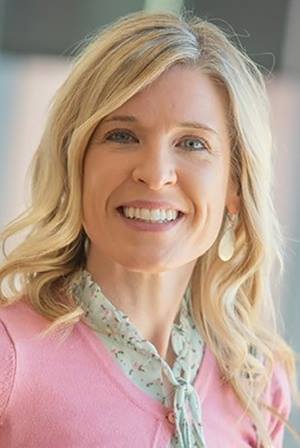
Shannon Peterson, RN, is an ambulatory nurse director
- Reward yourself with “guilt-free” relaxation. Chris says he tries to reward himself for achieving his goals by unplugging and relaxing. “I keep telling myself I’ve earned the right to find joy and to relax in my own way,” Chris says. “Make no mistake, it’s difficult not to think of everything I have to do, but freeing my mind and thinking about something else can be an effective way to recharge. The concept is certainly worthy of pursuit.”
- Recognize everyone is different. Find what works for you. Kimmie says setting goals is personal and while some people thrive with such structure, others find goal setting and constantly pushing toward goals can take “too heavy an emotional toll.” “Life is more than fails and successes and the worth or value of your life is more than the goals you reach,” Kimmie says.
Here are a few resources that provide additional insight into goal-setting:
Science Says Only 8 Percent of People Actually Achieve Their Goals. Here Are 7 Things They Do Differently, “Inc. Magazine.”
Neuroscience Explains Why You Need To Write Down Your Goals If You Actually Want To Achieve Them, “Forbes”
Increase the Odds of Achieving Your Goals by Setting Them with Your Spouse, “Harvard Business Review”
The Science & Psychology Of Goal Setting 101, “PositivePsychology”
How Successful People Reach Their Goals, “Harvard Business Review” video
Author Jim Collins describes the value of Big Hairy Audacious Goals
Atomic Habits: How to Get 1% Better Every Day, Author James Clear video

